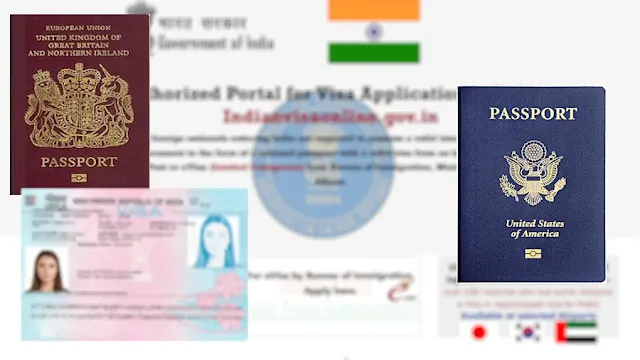Table of Contents

India, with its vibrant culture, exotic wildlife, and diverse cuisine, is a dream destination for travelers worldwide. To ensure a seamless journey, proper documentation is essential. This guide outlines the necessary travel documents, including passports, visas, and vaccination certificates, to help you prepare for your trip to India.
Passport and Visa Requirements
A valid passport and visa are mandatory for entering India, as outlined by the Ministry of Home Affairs. These documents ensure compliance with India’s immigration policies.
Passport:
- Must be valid for at least 6 months beyond your planned departure date from India.
- Should have sufficient blank pages for entry and exit stamps.
Visa:
- Tourist Visa: For stays up to 60 days, apply for an e-Visa through the India Visa Online Service.
- Other Visas: For longer stays or purposes like work or study, a paper visa is required. Submit an online application and provide supporting documents.
- OCI Card: Overseas Citizen of India (OCI) cardholders are exempt from visa requirements.
India e-Visa and Visa-on-Arrival
India’s e-Visa simplifies entry for short-term visitors. Eligible travelers can apply online, receive approval via email, and have their visa stamped upon arrival. The e-Visa supports tourism, business, or medical visits for up to 60 days.
Eligibility: Nationals of countries like Japan, South Korea, and certain UAE citizens (with prior e-Visa or paper visa history) qualify for visa-on-arrival. Apply at least four days before travel via the India Visa Portal.
Who Is Not Eligible for an e-Visa?
The following travelers cannot apply for an Indian e-Visa:
- Nationals of non-eligible countries (e.g., Pakistan).
- Individuals with Pakistani origin or heritage.
- Holders of diplomatic or official passports.
- Travelers planning journalism, filmmaking, research, or missionary activities.
- Those intending to stay longer than 60 days.
- Individuals with a criminal record or history of terrorist activities.
Verify eligibility on the official Indian visa website before applying.
How to Apply for an Indian Visa
Short-term Tourist e-Visa:
- Apply via the India Visa Online Service.
- Complete the application, pay the fee, and receive your e-Visa via email within days.
Long-term or Special Purpose Visas:
- Submit an application through the India Visa Portal.
- Provide required documents by mail or in person, and schedule an appointment if needed.
For global travel guidelines, consult the IATA Travel Centre.
Types of Indian Visas
India offers various visa types to suit different travel purposes:
- Tourist Visa: For leisure and sightseeing.
- Business Visa: For meetings and conferences.
- Employment Visa: For working in India.
- Transit Visa: For transiting through India.
- Conference Visa: For attending seminars.
- Medical Visa: For medical treatments.
- Journalist Visa: For media coverage.
- Film Visa: For filmmaking.
- Student Visa: For academic studies.
Vaccination Certificates
While not always required, carrying a vaccination certificate is recommended, especially if traveling from regions with disease risks. Recommended vaccinations include:
- Hepatitis A and B
- Typhoid
- Tetanus
- Polio
- Cholera
- Yellow Fever (mandatory for arrivals from high-risk countries)
Consult a healthcare provider or visit the CDC Travel Health page for tailored advice.
With the right documents—valid passport, appropriate visa, and vaccination certificates—you’re set for a memorable trip to India. Use this checklist to prepare in advance and explore India’s wonders hassle-free. For additional information, visit the U.S. State Department’s India Travel page.
Frequently Asked Questions
What documents are needed to travel to India?
You need a passport valid for at least 6 months, a visa or OCI card, and, if applicable, a vaccination certificate.
Can I get a visa-on-arrival for India?
Eligible nationals (e.g., Japan, South Korea, certain UAE citizens) can apply for an e-Visa, which is stamped upon arrival, for stays up to 60 days.
Who is ineligible for an Indian e-Visa?
Travelers from non-eligible countries, those with Pakistani heritage, diplomatic passport holders, or those planning journalism or long-term stays are ineligible.
Are vaccinations required for India travel?
Vaccinations are recommended (e.g., Hepatitis A, Typhoid), and Yellow Fever is mandatory if arriving from high-risk countries.






No comments:
Post a Comment